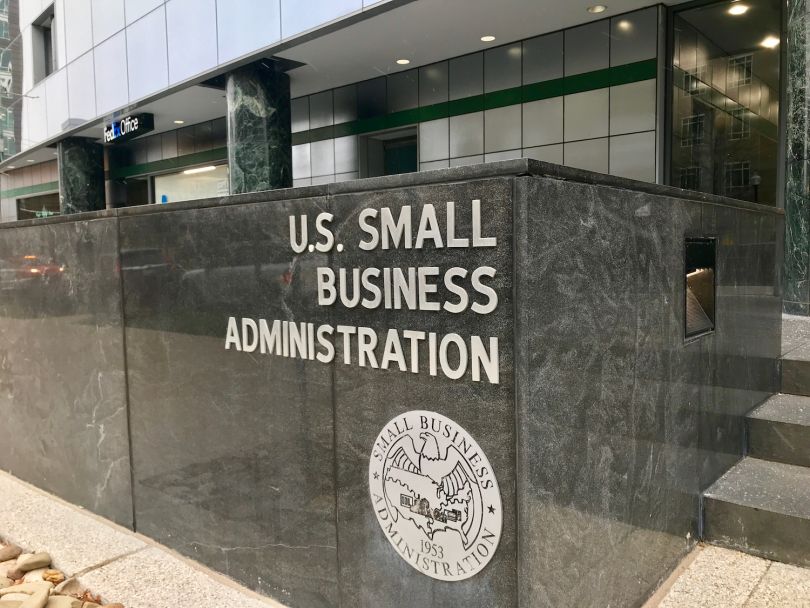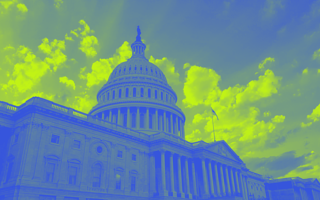The federal government rolled out the $3 trillion Coronavirus Aid, Relief, and Economic Security (CARES) Act in March, providing much-needed support for individuals and businesses affected by the pandemic.
The nation’s startup community, however, wasn’t celebrating yet. Many startups were hoping for relief loans, and the eligibility of startups with venture capital investors wasn’t — and still isn’t — entirely clear.
In some ways, the outlook for VC-backed startups has gotten rosier in the weeks since. It’s now generally understood that most VC-backed startups are indeed eligible for loans under the Paycheck Protection Provision of the CARES Act.
In other ways, circumstances are bleaker. The PPP ran out of funds on the night of Wednesday, April 15, amid a rush by small businesses to claim them. Legislators on both sides of the aisle support adding more money, but disagreements over how to do so are stalling any action. Congressional Republicans and the presidential administration are calling for a fast cash bump. Democrats, meanwhile, want measures in place that will funnel more federal money toward minority-owned companies, as well as hospitals, food stamp programs and state and local governments.
Many are hopeful that legislators will find a solution and the lending program will get more money. When that time comes, here’s what VC-backed startups need to know, and what some venture capital experts had to say about it.

Why all the confusion about eligibility?
The startup community has known from the jump that companies with more than 500 employees are not eligible for PPP lending, overseen by the Small Business Administration. How to calculate a company’s headcount, however, has caused confusion.
That’s because of some existing SBA guidelines called affiliation rules. Those rules help determine if a company is affiliated with another entity — like a private equity firm that owns it or another company that its CEO controls. If two or more companies are affiliated, their employees get lumped together into a single tally.
One of the biggest points of confusion regarding startups’ eligibility has been which section of a particular SBA rule startups and their investors should use to determine affiliation: Section 103 or Section 301.
“The reporting in the press was, ‘Startups are totally ineligible or almost totally ineligible.’ And then there were these great soundbites and there were people who took to Twitter or the blogosphere and said, ‘Why are startups shut out?’” said Ed Zimmerman, a co-founder of the Tech Group at law firm Lowenstein Sandler and adjunct professor of venture capital at Columbia Business School.
“But that’s not what the law says. That’s analysis under Section 103, and the proper way to do the analysis is under 301. As a dyslexic, I don’t love that those numbers are almost identical,” Zimmerman said. “[Lowenstein Sandler] saw that, and we started scratching our heads and making phone calls. And then finally we said, ‘We don’t understand why people are not reading it the same way we are.’”
The United States Department of the Treasury issued guidance on April 3 to clarify: Section 301 is the correct rule. That was good news for startups, as Section 103 indicated that, if a startup had multiple minority stakeholders who together control a sizable portion of equity, they would count as affiliates. That interpretation would have knocked many VC-backed startups out of the running for loans.
Section 301, on the other hand, has much more forgiving definitions of affiliation, though startups still have some work to do to make sure these rules don’t apply to them.
Sometimes, it’s obvious when two companies are affiliated. If a startup has a shareholder with majority ownership — or greater than 50 percent of voting equity — that’s an affiliate. Other times, it’s less clear. In some cases, minority owners will have protective provisions in a startup’s charter that give those owners the power to block board meetings or veto day-to-day business decisions. Those provisions, many believe, would constitute affiliation in the eyes of the SBA because the minority owners have so-called negative control.
So, what can trigger negative control? No one can say once and for all, as our understanding of SBA rules can only come from prior examples of negative control. But here are some things companies can look out for, according to Zimmerman:
- Can any minority investor block a board meeting? Does any particular board member have to be present for a meeting to take place?
- Can any minority investor veto day-to-day decisions, like borrowing money, adjusting employee compensation or setting budgets?
- Are there any outstanding convertible or exercisable securities that could change ownership percentages and make a shareholder a majority owner?

So, what if a startup does have an investor with negative control?
Even if a startup does have a shareholder with negative control, it’s not game over. Startups and VCs can work together to get rid of whatever provisions are causing ineligibility.
The best way to get this done may vary from startup to startup. Zimmerman and his associates recommended in Forbes that VCs sign an irrevocable waiver relinquishing the problematic veto power. Startups and VCs could also amend their charters to eliminate the veto power or grant the same power to other shareholders, but that requires more time, money and negotiation.
The Forbes piece said the additional negotiations required to amend a charter could “incent investor misbehavior.” But investors generally have little incentive to make a fuss in this scenario.
“I can tell you that my priority would be the well-being of my company,” said Karin O’Connor, a partner at Serra Ventures* and assistant professor of growth strategy at Kellogg School of Management. “It would be unfortunate for an investor to not at least strongly consider getting rid of protective provisions in order to get the company sufficient resources to continue.”
“VCs have an incentive to want their companies to prosper. There will be an incentive to give up those rights.”
Charter amendments, for the record, are generally no big deal to VCs. In fact, they happen “all the time,” Ilya Strebulaev said. Strebulaev is a professor of finance and director of the Venture Capital Initiative at Stanford Graduate School of Business.
“In normal times, the charter gets updated every single funding round. Often, they even amend between the rounds,” he added.
When a VC firm makes any significant investment in a startup, it generally puts one of its members on the startup’s board. That means VCs are well aware of a startup’s financial position at a given moment and whether stimulus money is necessary to protect their investment. That’s why, in most cases, Strebulaev said, startups won’t meet resistance from their investors when it comes to PPP eligibility. But that doesn’t mean it’s impossible.
“There’s a tradeoff,” he said. “On one hand, VCs have an incentive to want their companies to prosper. There will be an incentive to give up those rights. On the other hand, there’s a reason why those rights exist in the first place.”

Are there other barriers to eligibility?
The most obvious barrier to eligibility is also the trickiest for companies: You’re not supposed to apply for relief money unless you actually need it.
Per the SBA, applicants must certify “in good faith” that the money is “necessary to support the ongoing operations of the applicant” and that they’ve been “adversely impacted” by COVID-19.
Based on the SBA’s PPP lending application and guidance from the Treasury, the burden lies with applicants, not lenders, to verify their eligibility in this respect. If startups are found to have applied for PPP lending when they don’t really need it, they could be prosecuted in the next few years.
That’s no good — especially since the grounds for needing money are hazy. On the other hand, that haziness would make these cases particularly difficult for the federal government to prosecute effectively. The best approach is for startups to keep a compelling paper trail demonstrating that their revenue or metrics were adversely affected by the pandemic, Kathleen Mcgee, an attorney at Lowenstein Sandler and former bureau chief of internet and technology for the New York Attorney General’s Office, said in an April 9 webinar.
“If it is demonstrable on the budget in the Excel spreadsheet you’re keeping that things are going to get much tighter because of COVID-19, then I think you’re justified,” she said. “But you have to have that good faith justification. If you have a year of bank, it’s probably going to be a flag raised for regulators.”
“You need to feel comfortable that you would have a hard time making payroll these next few months if you didn’t get this loan.”
Perhaps the most important thing to show, given that PPP lending is meant to prevent layoffs, is that the startup has made them or is preparing to make them. If the company is growing its headcount, that could raise eyebrows, Zimmerman said during the webinar. So could a longer runway — applicants with just two months of cash reserves are safer than those with six months or a year, for example.
“If a prosecutor goes back two years from now and starts clawing through your files for a good faith substantiation, that’s what they’re going to be looking for,” McGee said during the webinar. “So you need to feel comfortable that you would have a hard time making payroll these next few months if you didn’t get this loan.”
A startup’s paper trail should also demonstrate that its board was fully informed and involved in the decision to apply for PPP lending, Zimmerman added. He advised that startups be careful as they deliberate, as any communication suggesting that the PPP money isn’t truly necessary could work against the company later.
“If there are emails with the board saying, ‘This is free money,” or ‘This seems easy,’ remember you’re certifying that you need it at the time you put in the application, so having that kind of evidence in the record is not something that’s going to be helpful from a post-pandemic enforcement perspective,” he said.
If a startup isn’t sure if it’s been adversely affected enough to apply, it can always wait until its situation becomes more clear, Kimberly Lomot, an attorney at Lowenstein Sandler, said during the webinar. Eagerness to claim available funds, if more become available, could get startups in trouble if they’re not applying in good faith.

How COVID-19 could affect the VC industry
COVID-19 and the resulting lending program are shifting relationships between startups and VCs in relatively small ways — like the deletion of protective provisions, in some cases.
But the pandemic will also have more far-reaching effects on the venture capital landscape. If history is any indicator, startups could struggle to raise funding for years to come, Strebulaev said.
“If you go back to the bubble burst of 2000, the funding markets cooled down substantially and remained cool for about two to three years. So in the worst-case scenario, I would consider the same two to three years horizon,” he said. “Now, that’s huge from the point of view of a startup. If you did not raise money or didn’t have cash pumped into your accounts before all this hit, then of course you’re in an unfortunate situation.”
The good news, arguably, is that this downturn doesn’t seem different or more severe than those of 2000 or 2008, Strebulaev said. But that doesn’t mean it won’t be painful for the startup industry, he added, in which young companies rely on fundraising and are often unprofitable. Regardless of profitability, what separates the companies that survive will likely be the cash they had on hand, he said.
“I don’t fault anyone. This thing was put together so fast, and everyone’s just doing their best to sort through the issues as they come.”
As for VC-backed startups, the lack of explicit exclusions from affiliation rules in the CARES Act may speak to optics on the part of the federal government, some have speculated. If fancy investment firms can fund you, the reasoning goes, can’t they bail you out during a downturn? (Troy Henikoff, a partner at MATH Venture Partners,* refutes that thinking in my previous reporting.)
SBA-affiliated banks, meanwhile, could balk at lending to VC-backed startups because of their reputation for cash burn and unprofitability, O’Connor said. If borrowers don’t meet loan forgiveness requirements — like putting 75 percent of the money toward payroll — lenders are on the hook with a new line of credit.
No matter what’s going through the heads of lenders or legislators, it’s unlikely there’s any ill will toward the startup economy, O’Connor said. The CARES Act came together in a scramble, and its goal was to provide relief as quickly as possible. It’s no surprise the program came with some frayed ends.
“I don’t fault anyone. This thing was put together so fast, and everyone’s just doing their best to sort through the issues as they come,” O’Connor said. “It’s kind of like you’re catching balls as they’re being thrown at you.”
*Serra Ventures and MATH Venture Partners are investors in Built In.




